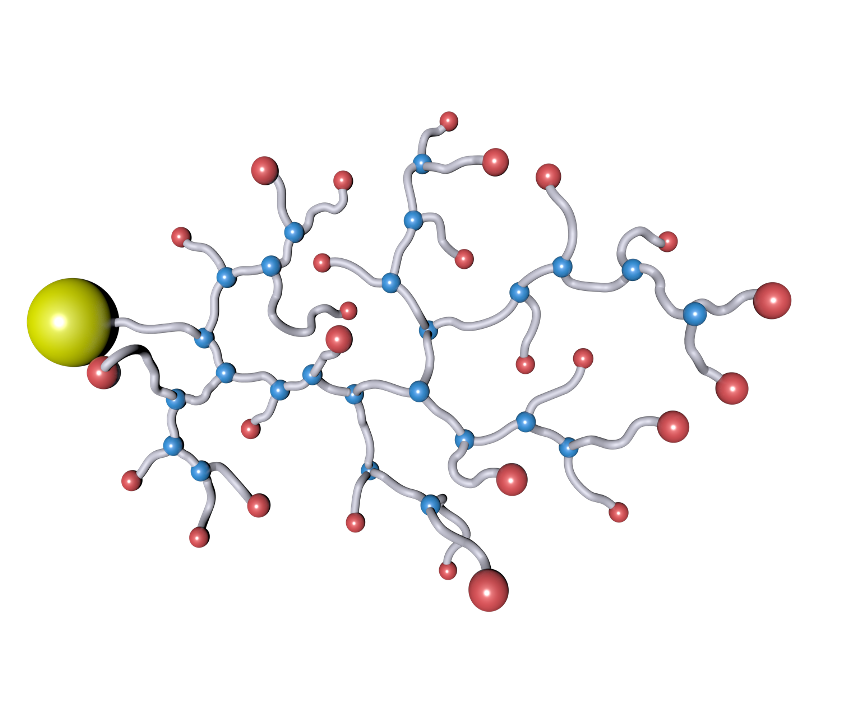Newest Advancements in Polymers: Cutting-Edge Innovation
Newest Advancements in Polymers: Cutting-Edge Innovation
Blog Article
Checking Out the Varied Applications and Advantages of Polymers in Different Industries
Polymers, with their varied series of buildings and capabilities, have actually come to be vital in numerous sectors, each enjoying distinct advantages from their application. Polymers. From enhancing security and efficiency in the auto industry to transforming clinical devices in the healthcare industry, polymers play a pivotal role. Their environmentally friendly nature is altering the landscape of sustainability techniques. As we dive into the depths of polymers in electronics, we reveal innovative advancements, while their structural stability changes the realm of construction and infrastructure. The prevalent impact of polymers throughout industries is a testimony to their adaptability and versatility, shaping the future of plenty of markets.
Automotive Industry Applications
Polymers play a crucial function in improving the performance and durability of different elements within the automobile sector. One famous usage of polymers in the vehicle industry is in the production of lightweight elements.

Healthcare Industry Advantages
In numerous medical care applications, the benefits of making use of polymers are widely acknowledged for their diverse variety of helpful properties. Polymers play a critical duty in the medical care industry due to their flexibility, biocompatibility, and cost-effectiveness. One of the primary advantages of polymers in medical care is their capacity to be customized to certain demands, such as versatility, toughness, and biodegradability, making them excellent for a wide variety of medical applications.
Polymer-based materials are thoroughly utilized in medical devices, such as catheters, implants, prosthetics, and medicine shipment systems, because of their biocompatibility and capability to mimic all-natural tissues. These materials can lower the danger of allergies or denials, boosting person safety and end results. In addition, polymers are lightweight, making them suitable for wearable clinical gadgets and making sure individual comfort.
Moreover, polymers enable the growth of cutting-edge treatment approaches, such as hydrogels for tissue design and nanocomposites for targeted drug distribution. Their ease of processing and sanitation makes them vital for keeping high standards of health in health care setups. Overall, the diverse benefits of polymers add substantially to advancements in medical technology and client treatment.
Ecological Benefits of Polymers

Furthermore, polymers can contribute to energy financial savings because of their lightweight nature. In sectors such as transport, lightweight polymer products can help in reducing gas consumption and greenhouse gas exhausts. In addition, polymers can allow the growth of energy-efficient items such as insulation products that Extra resources boost power conservation in buildings.
Furthermore, polymers play an important duty in lowering water pollution. The usage of polymer-based filtering systems can effectively eliminate toxins and pollutants from wastewater, securing water sources and environments. Generally, the ecological advantages of polymers make them useful possessions in advertising sustainability and environmentally friendly methods across various sectors.
Polymers in Electronics and Technology
Taking into consideration the increasing need for ingenious and lasting remedies in modern industries, the integration of sophisticated polymer innovations in the realm of electronic devices and modern technology has become a critical approach for driving efficiency and efficiency. Polymers have changed the electronics sector by allowing the manufacturing of lighter, extra adaptable, and durable digital devices. From smartphones to clinical gadgets, polymers play a vital duty in improving product layout and functionality.
One considerable advantage of polymers in electronic devices is their insulating homes, which help shield delicate electronic parts from environmental factors and electrical interference. Furthermore, polymers are crucial in the development of adaptable screens, wearable technology, and printed electronic devices, offering countless possibilities for producing smart and interconnected gadgets.
Additionally, the use of polymers in electronic Web Site product packaging has resulted in improvements in miniaturization and thermal management, improving the general efficiency and reliability of electronic systems. As technology remains to progress, the convenience and versatility of polymers will undoubtedly drive additionally development in the electronics industry, forming the future of innovation.
Duty of Polymers in Building And Construction and Infrastructure
The combination of innovative polymer products in building and facilities jobs has actually revolutionized the way frameworks are developed and constructed in modern-day times. Polymers use various advantages in the building industry due to their versatility, longevity, and cost-effectiveness. One crucial function of polymers in building and construction is their use in coatings and sealants, offering protection versus ecological elements such as dampness, UV radiation, and deterioration. Additionally, polymers are used in the manufacturing of light-weight and high-strength composite materials, improving the structural stability of buildings while decreasing overall weight.
In addition, polymers play a vital role in sustainable construction practices by allowing the development of energy-efficient structures. Shielding materials made from polymers assist manage interior temperatures, minimizing the need for home heating and cooling systems and eventually decreasing power usage. Furthermore, making use of polymer-based composites in facilities tasks such as bridges and roads boosts their longevity and reduces upkeep prices. Overall, the consolidation of polymers in building and infrastructure displays their considerable effect on modern engineering methods. site
Conclusion
Finally, polymers play a critical role in various markets such as vehicle, medical care, ecological, electronic devices, and building and construction. Their functional buildings make them important in developing cutting-edge options and items. From enhancing gas effectiveness in automobiles to improving medical gadgets, polymers use numerous benefits. In addition, their influence on lowering waste and advertising sustainability highlights their significance in contemporary applications. The widespread use of polymers shows their substantial payment to advancing technology and improving lifestyle.
Report this page